Abstract
Five pigeons whose key pecking was maintained by 4-sec access to grain on a variable-interval 2-min schedule received Pavlovian differential conditioning trials superimposed upon the instrumental baseline. The conditioned stimuli were changes in the stimulus on the key from white to red, or to a white horizontal line against a dark background. The positive conditioned stimulus was 20 sec long, and was followed immediately by 8-sec access to grain. The negative conditioned stimulus, also 20 sec long, was never paired with response-independent food. All pigeons responded more rapidly in the presence of the positive conditioned stimulus than in the presence of the negative one. The positive conditioned stimulus produced an increase in response rate over the pre-conditioned stimulus period. The negative conditioned stimulus had no marked effect upon response rate. When the roles of the positive and negative stimuli were reversed, and the duration of the response-independent reinforcement was reduced to 4 sec, the new positive conditioned stimulus came to facilitate responding, and the new negative conditioned stimulus no longer produced facilitation. A second discrimination reversal produced similar outcomes. When a third reversal was initiated, and the duration of response-independent reinforcement was reduced to 2 sec, the difference between the effects of the positive and negative stimuli diminished.
Full text
PDF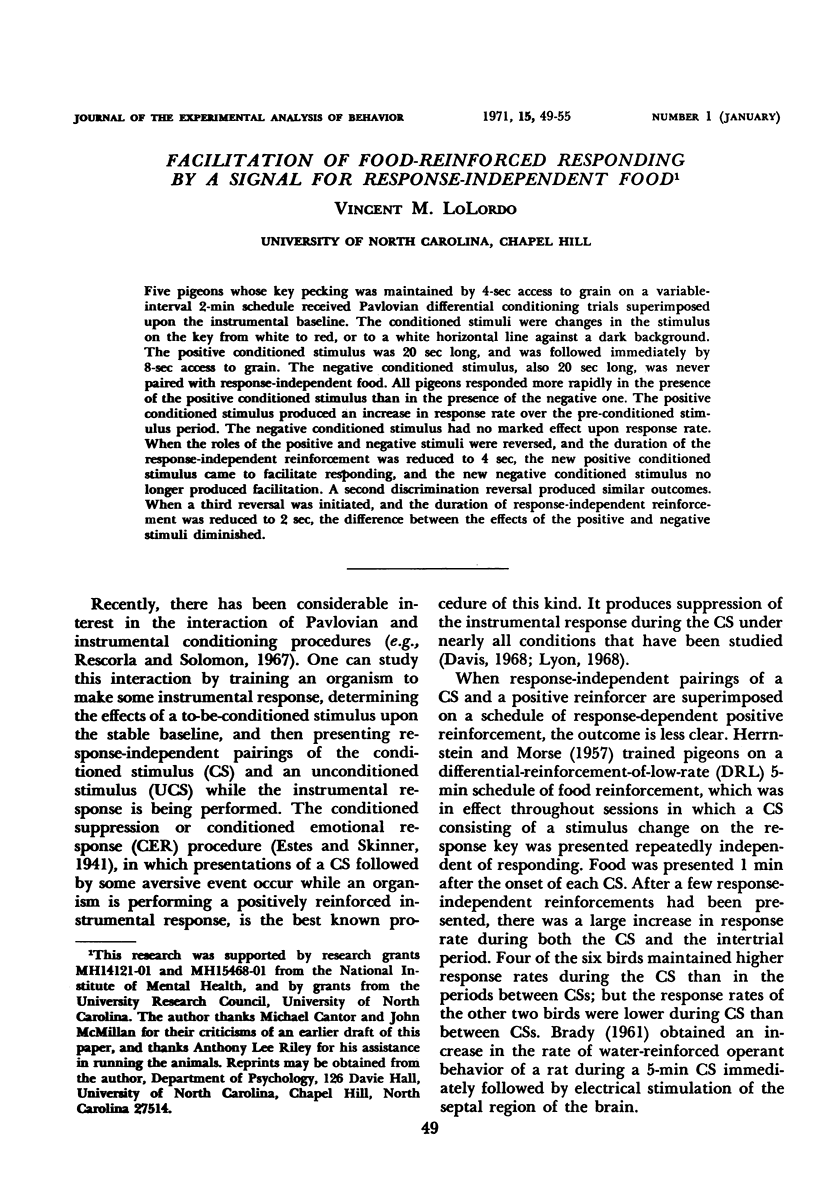
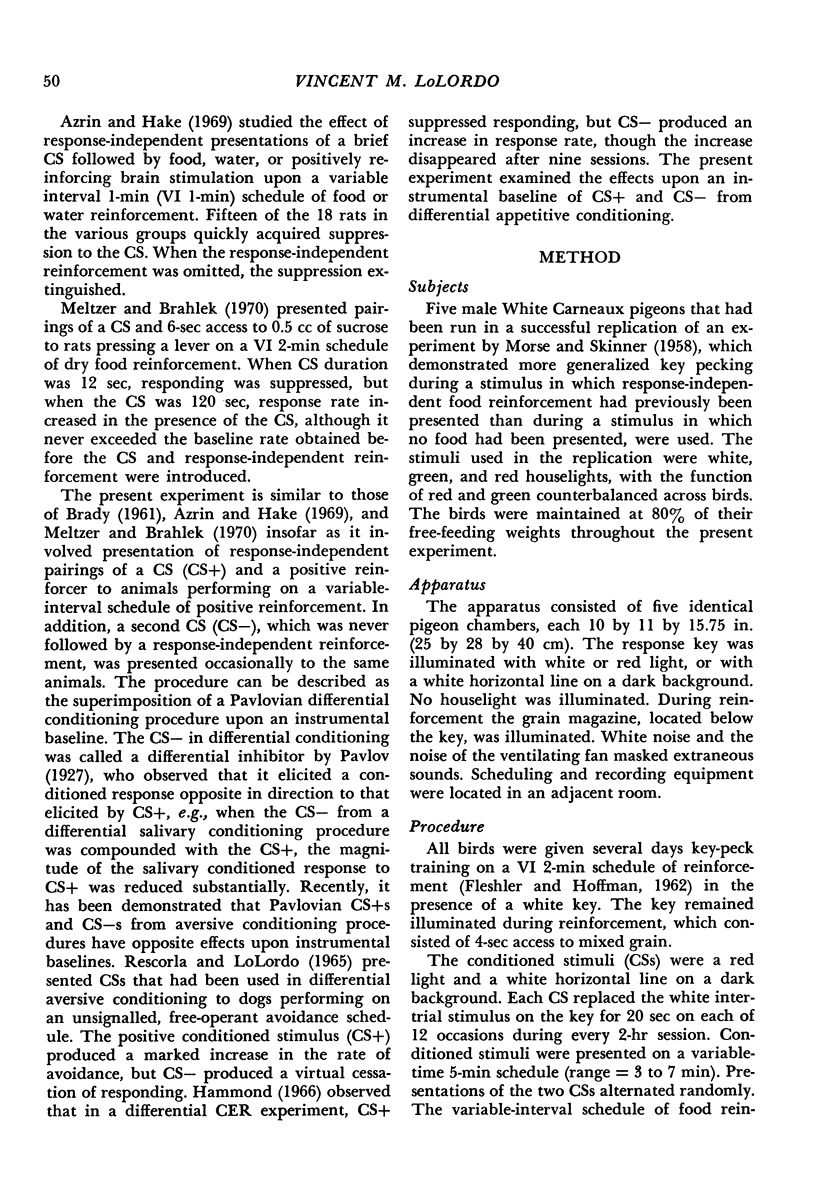
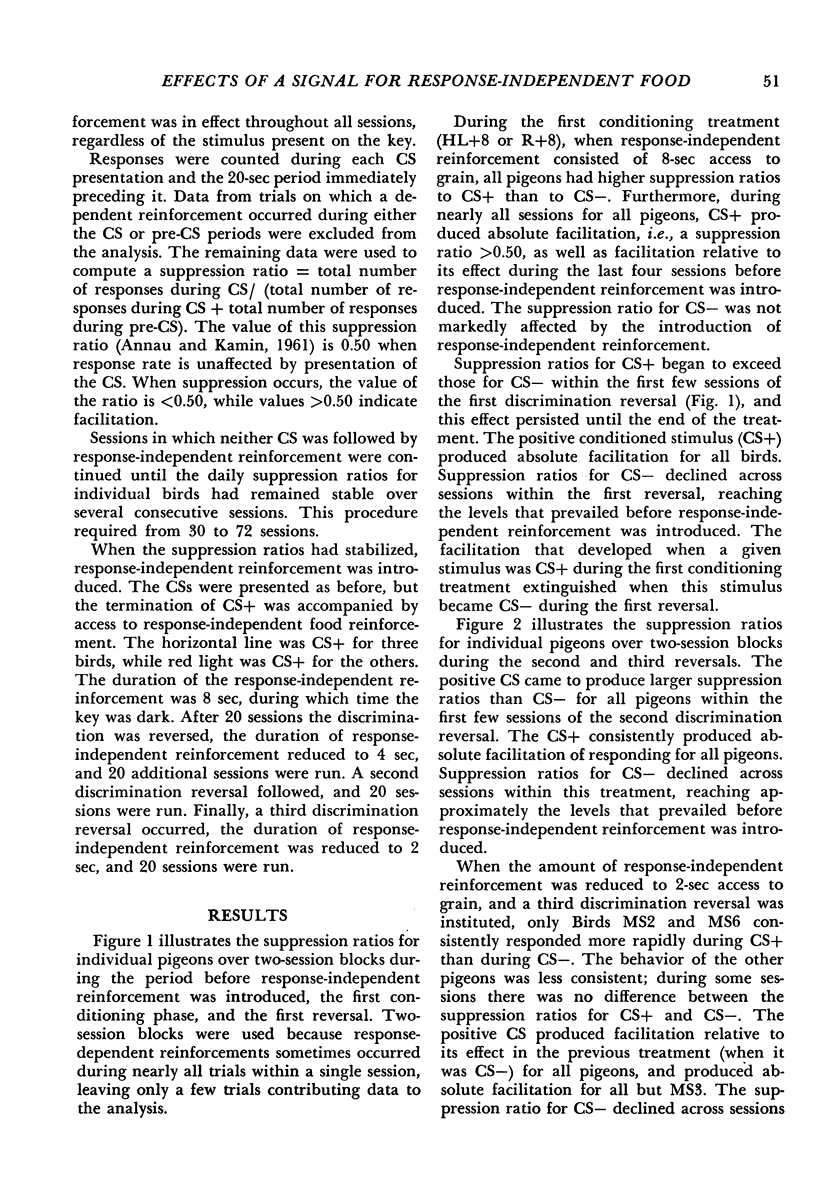
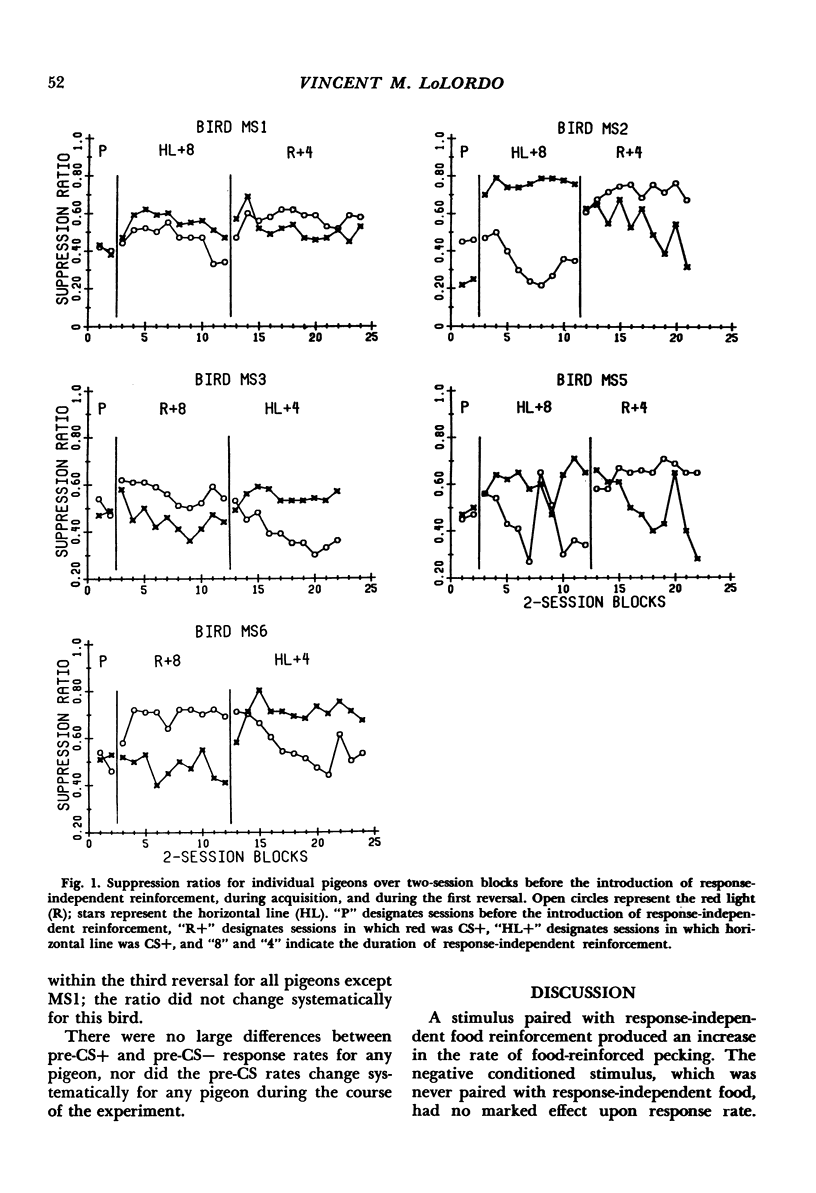
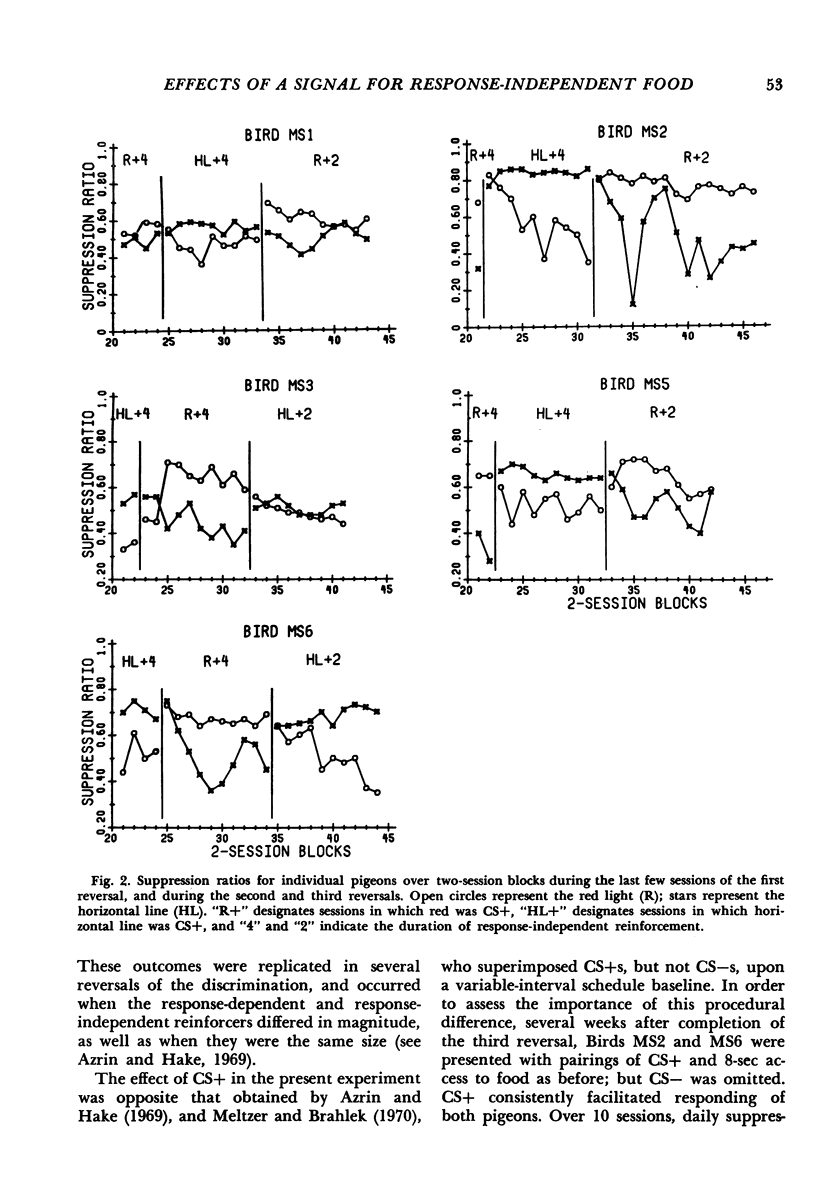
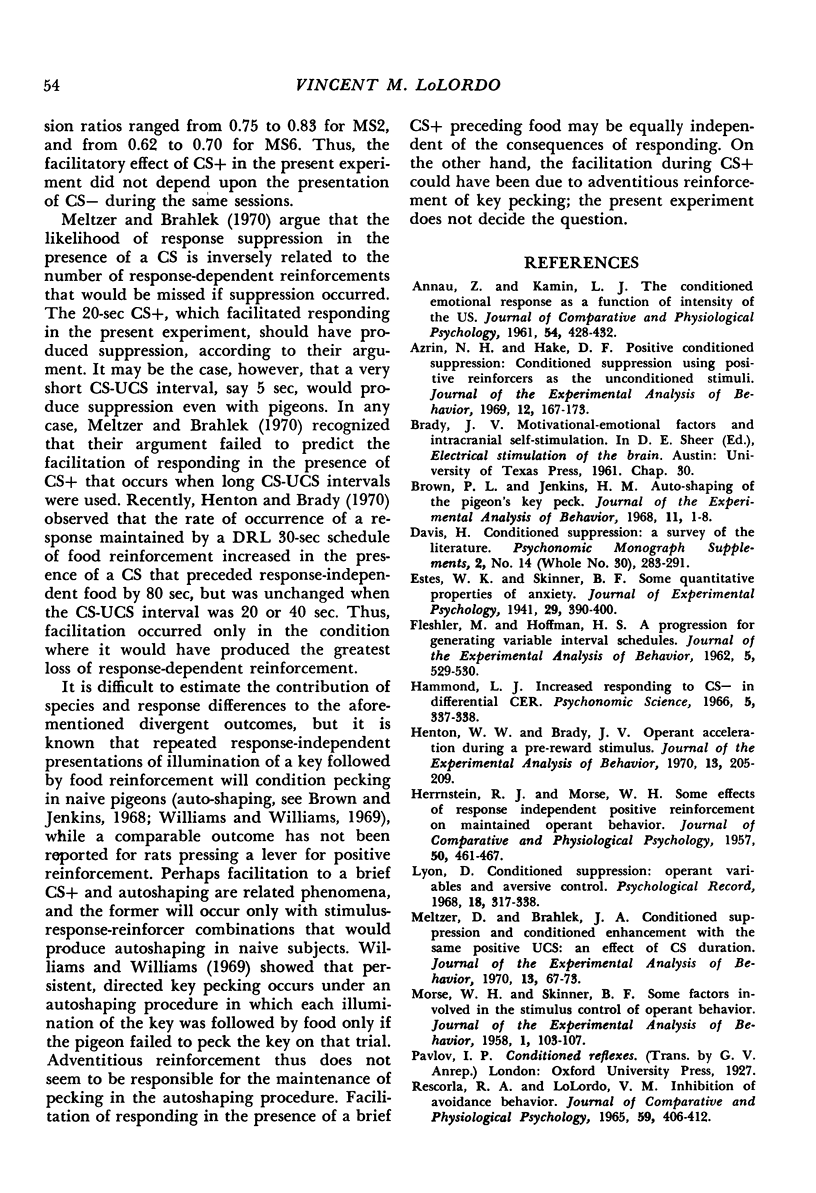
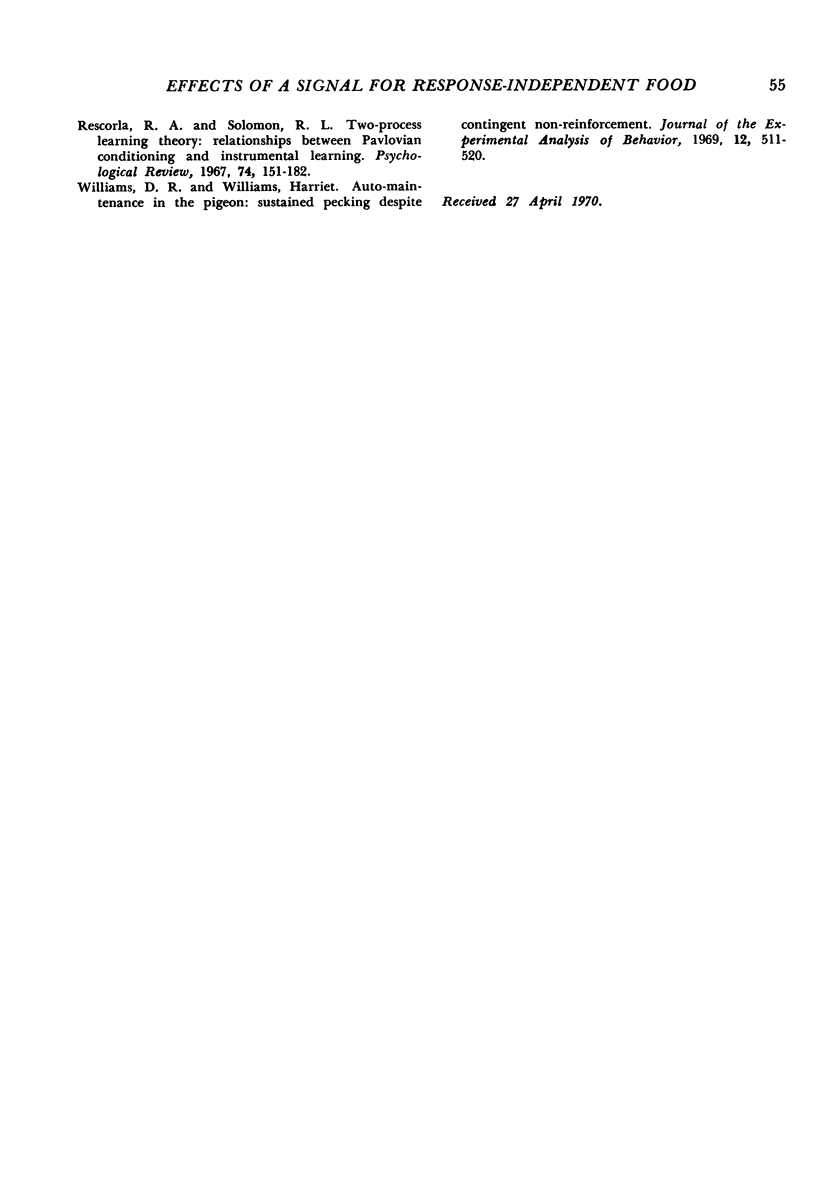
Selected References
These references are in PubMed. This may not be the complete list of references from this article.
- ANNAU Z., KAMIN L. J. The conditioned emotional response as a function of intensity of the US. J Comp Physiol Psychol. 1961 Aug;54:428–432. doi: 10.1037/h0042199. [DOI] [PubMed] [Google Scholar]
- Azrin N. H., Hake D. F. Positive conditioned suppression: conditioned suppression using positive reinforcers as the unconditioned stimuli. J Exp Anal Behav. 1969 Jan;12(1):167–173. doi: 10.1901/jeab.1969.12-167. [DOI] [PMC free article] [PubMed] [Google Scholar]
- Brown P. L., Jenkins H. M. Auto-shaping of the pigeon's key-peck. J Exp Anal Behav. 1968 Jan;11(1):1–8. doi: 10.1901/jeab.1968.11-1. [DOI] [PMC free article] [PubMed] [Google Scholar]
- FLESHLER M., HOFFMAN H. S. A progression for generating variable-interval schedules. J Exp Anal Behav. 1962 Oct;5:529–530. doi: 10.1901/jeab.1962.5-529. [DOI] [PMC free article] [PubMed] [Google Scholar]
- HERRNSTEIN R. J., MORSE W. H. Some effects of response-independent positive reinforcement on maintained operant behavior. J Comp Physiol Psychol. 1957 Oct;50(5):461–467. doi: 10.1037/h0041506. [DOI] [PubMed] [Google Scholar]
- Henton W. W., Brady J. V. Operant acceleration during a pre-reward stimulus. J Exp Anal Behav. 1970 Mar;13(2):205–209. doi: 10.1901/jeab.1970.13-205. [DOI] [PMC free article] [PubMed] [Google Scholar]
- MORSE W. H., SKINNER B. F. Some factors involved in the stimulus control of operant behavior. J Exp Anal Behav. 1958 Jan;1:103–107. doi: 10.1901/jeab.1958.1-103. [DOI] [PMC free article] [PubMed] [Google Scholar]
- Meltzer D., Brahlek J. A. Conditioned suppression and conditioned enhancement with the same positive UCS: an effect of CS duration. J Exp Anal Behav. 1970 Jan;13(1):67–73. doi: 10.1901/jeab.1970.13-67. [DOI] [PMC free article] [PubMed] [Google Scholar]
- RESCORLA R. A., LOLORDO V. M. INHIBITION OF AVOIDANCE BEHAVIOR. J Comp Physiol Psychol. 1965 Jun;59:406–412. doi: 10.1037/h0022060. [DOI] [PubMed] [Google Scholar]
- Rescorla R. A., Solomon R. L. Two-process learning theory: Relationships between Pavlovian conditioning and instrumental learning. Psychol Rev. 1967 May;74(3):151–182. doi: 10.1037/h0024475. [DOI] [PubMed] [Google Scholar]
- Williams D. R., Williams H. Auto-maintenance in the pigeon: sustained pecking despite contingent non-reinforcement. J Exp Anal Behav. 1969 Jul;12(4):511–520. doi: 10.1901/jeab.1969.12-511. [DOI] [PMC free article] [PubMed] [Google Scholar]


